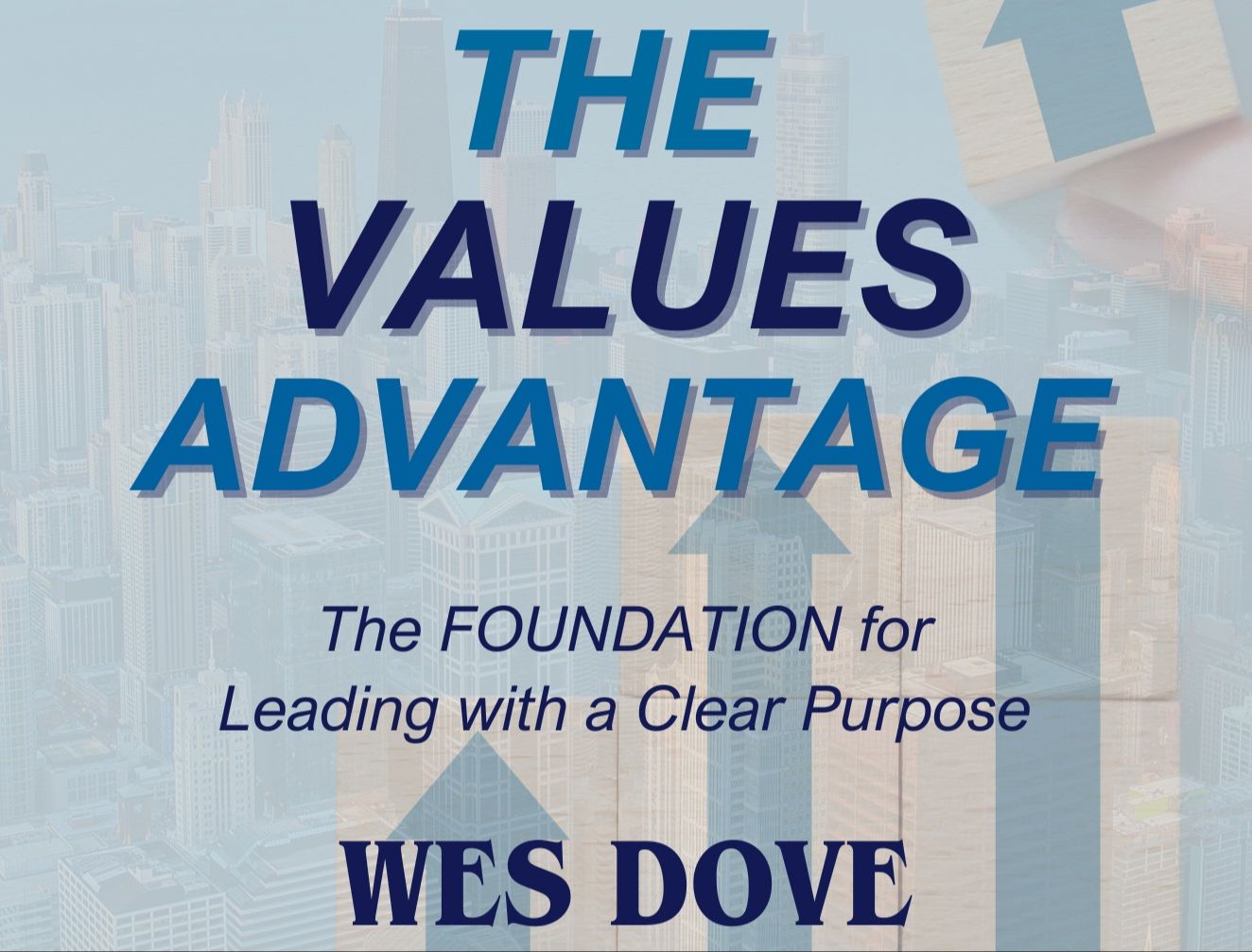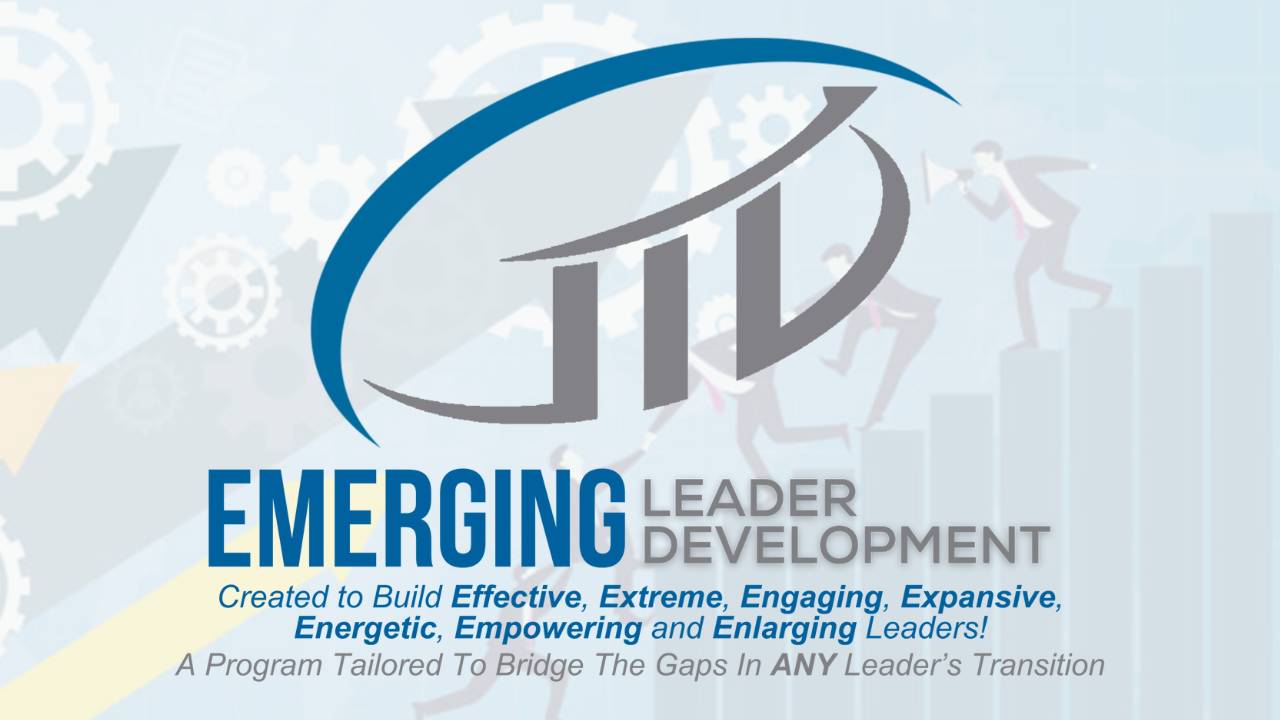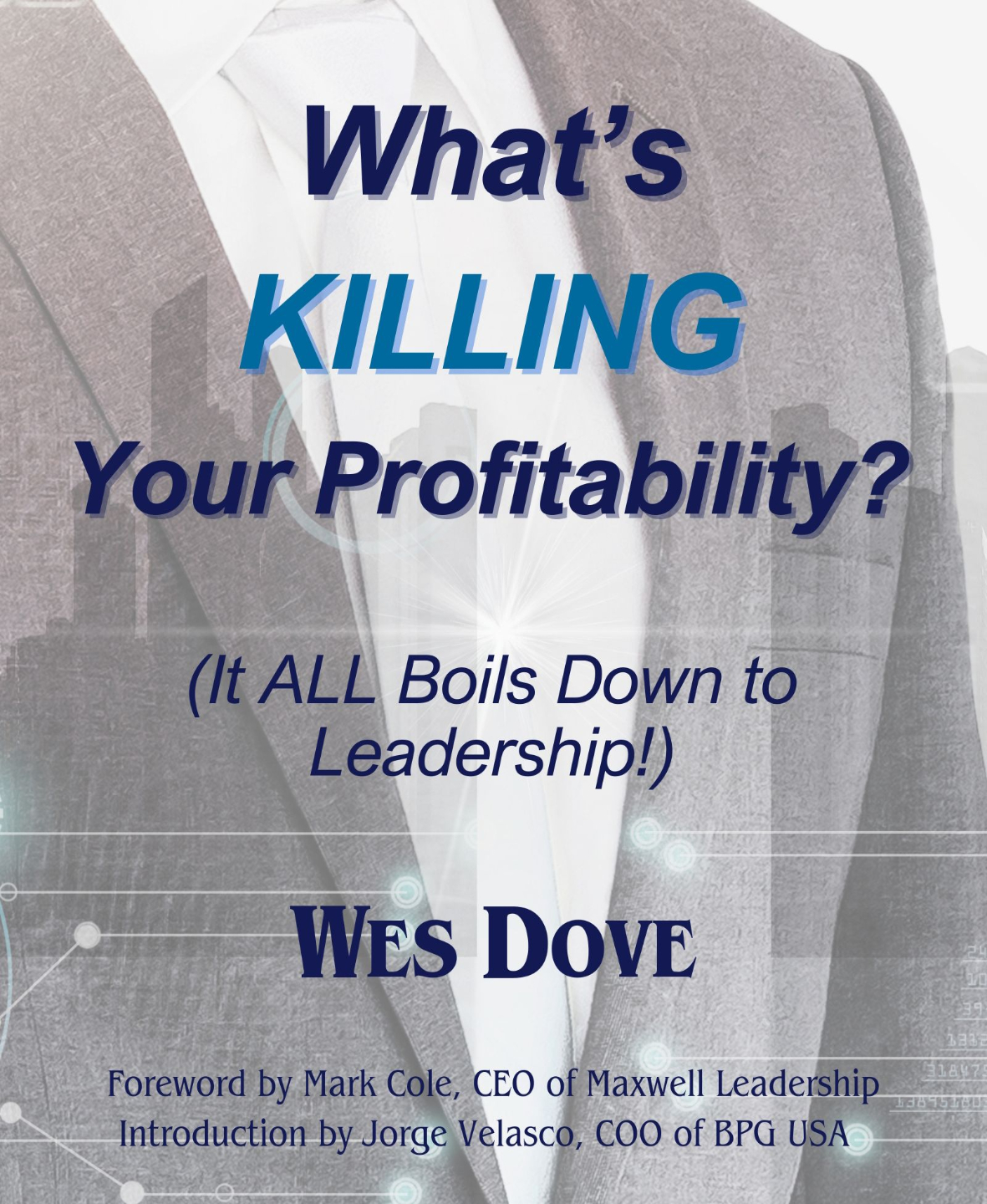Valuing Others and Being Available
For most of the last fifteen years I worked in manufacturing, I had interaction with each group of new team members on their first day of orientation. When I moved into a full time human resources role, I was responsible for covering the key points of the company policy manual, detailing attendance expectations, and walking my new coworkers through the steps in our progressive disciplinary process - just in case they chose to push the boundaries defined in that painfully boring handbook. While there was little emphasis placed on organizational values, largely because I had never had anyone cover whatever the company listed as values in specificity during all the time I worked there leading up to that point, I stressed the importance of mutual respect. I explained what their supervisors and managers would expect from them as well as the respectful treatment they should expect from those same supervisors and managers. While titles indeed varied across the organizational hierarchy, every role was important and that should be evident in the respect shown to each individual daily.
Then, and still today, I meant that with every fiber of my being. But you know as well as I do that not everyone lived up to that every day. I’ll stress once more here: there’s no such thing as a self-made leader; not even those folks who believe they hung the moon all by themselves. I’m sure you’re picturing a few of them, and I am too. Relationships are absolutely crucial for each of us to unlock our true leadership potential. To earn influence that supersedes any title we could ever hold, to come to terms with our own true worth, to build qualifications that go beyond any certification we achieve, or to authentically practice the art of responsiveness, valuing others and being available is a must.
Consider the people you’ve worked around, especially the ones with prestigious positions, who did nothing to cover the fact that they saw most everyone working around them as their underlings. The ones I’ve worked around were quick to let anyone and everyone know they were in charge. If you weren’t sure just how important they were, all you had to do was ask them. Their poor planning automatically became everyone else’s emergency.
Now think of the leaders you’ve interacted with who held tremendous responsibility and juggled crazy schedules but never wavered in showing just how much they appreciated the teams around them and found time for anyone who requested it. I’ve referenced several of the examples I’ve had in my life leading up to this point - Terry, Kevin, Rod, Chris - but there have been so many more. If you happened to report to any of them, they were the ones who introduced you to their families by saying “I work with Wes.” Through the dozen years that Kevin was my supervisor, I never heard him tell anyone I was his employee. I can think of dozens of times where Terry corrected members of his team who said they worked for him by emphasizing they worked with him.
While this may seem like simple semantics, the feelings backing our vocabulary in either case tell a powerful story. Valuing others and being available unlocks leadership potential and strengthens teams. We won’t stand much chance of leaving a responsive legacy - or any type of positive legacy for that matter - unless we genuinely value others. Quite honestly, valuing others and being available should be a written prerequisite for holding any type of leadership responsibility (let alone a title that carries any kind of authority). Valuing others requires seeing their worth. Before we look at that in detail, think about how you can inspire those around you to start out by just fostering a culture of respect and growth.
Seeing People’s Worth
In a Facebook post dated August 1, 2025, Mark Divine, author of Staring Down the Wolf, shared the following:
Leadership is not a title.
It’s a burden of responsibility.
When you step into leadership, you’re saying:
- “I will go first.”
- “I will own the results—good or bad.”
- “I will make the hard calls, even when no one is watching.”
Most people want the recognition.
Few want the weight.
Real leadership means every success and every failure touches you first.
It means putting your team, your mission, and your values ahead of your ego.
If you want the role, take the responsibility.
If you want the respect, carry the weight without excuses.
Angela Fletcher, SPHR, opens an article called “The Privilege of Leadership: A Different Perspective” with the quote, “Leading others is a privilege with great responsibility.”
Both commentaries carry tremendous weight. The responsibility for leading a team, be that based solely on the title we hold or the influence we’ve earned, is a privilege that can indeed become a burden at times. I’ve never seen anyone who was completely focused on their own best interests lead a team well over the long haul. Without seeing people’s worth, leadership is far more of a burden than privilege. But recognizing worth builds a foundation for leadership impact.
As we looked at the ripple effect of relational leadership, I shared how Terry has frequently downplayed the investment he’s made in me over the years, saying that he had attempted to do the same thing for hundreds of others. As appreciative as I am that he didn’t throw in the towel before getting to me, that speaks to the value he saw (and continues to see) in the people around him; even the ones like me who were simply in the periphery. In the nearly thirty years I’ve known him, I can’t point to a single time where I’ve seen him have gaps in the schedule. But he’s always shown value to the people around him by being available, even if that meant blocking time on his calendar days or even weeks later.
We’ll circle back to how his example of availability earned a level of trust with me that few others ever have - especially since I didn’t really like him through our first few interactions. For now, I’ll share how working to share with others what he had provided for me has become far more of a privilege than a burden.
Cindy and I open the fifth lesson of our Emerging Leader Development course by asking participants to list three people who have mentored them to that point in their careers. We follow that by challenging them to send handwritten thank you cards to each, but that’s a story for another time. Once we have that foundation laid, we compare the feelings we automatically have when considering someone with unused potential versus the ones who exceed what anyone saw as their potential. I go on to share about someone I met when he was just seventeen years old. While he was a good kid, he could have easily been swallowed by his surroundings and ended up being a statistic. But he didn’t! Twenty years later, I get watery-eyes every time I talk about (or even think about) the difference he’s made in his community.
In one of our public sessions a few years ago, a young man pulled me aside at the short break immediately after that lesson and asked if the person I had referred to was his cousin, and mentioned my friend's name. Doing what I could to hold back tears, I told him that it was his cousin. He went on to say how much of an inspiration his cousin had been to him. The very next time Cindy and I offered the course publicly, my friend’s sister was in the group. She listed her brother as one of her three mentors, which made it even tougher for me to maintain composure through my next part about potential. Fast forward a few years, and my friend’s sister has had at least as much impact on her community - but in very different ways.
Had I not seen such an amazing example of valuing others and being available from Terry, I don’t know that I would have worked as hard to do the same for that young man (or anyone else for that matter) all those years ago. I emphasized it as we looked at fostering a mentorship culture and I’ll do it again now: I’m in no way taking credit for anything that young man - and now, his sister - has accomplished. Being a part of their journey has been an absolute honor.
Seeing his worth drove me to make myself available. Showing I valued him earned his trust, like Terry earned mine. To build that foundation in the relationships you have with your team, I’ll challenge you to actively look for ways to acknowledge the value they each have and show that you’re available.
Building Availability Through Trust
Even when we see people’s worth, being available isn’t (and shouldn’t be) a blank check. Valuing someone is wildly different than providing them with unlimited time at the drop of a hat. Whether it was Terry, Chris, or any other mentor who’s been a blessing in my life over the years, getting a spot on their calendar once didn’t equate to a never-ending open door. Just like the example I provided earlier showing how John Maxwell earned ongoing mentorship from John Wooden, it was up to me to earn trust with my mentors. I did that by respecting their time and doing everything in my power to put anything they shared with me into practice.
Don’t misunderstand me here, I’m not suggesting that someone is worth less just because they don’t take action on what a mentor suggests. Nor am I making a case that they’re responsible for blindly accepting everything that’s suggested to them and running with it. Personal responsibility is something that gets far too little attention today. Whether we’re the one receiving suggestions from a mentor or we’re the mentor providing guidance, we hold complete responsibility for where we invest our time and the actions we take in that time.
With that in mind, consider a scenario where you juggled things around on your calendar so you could be available for someone, you listened intently to what they were dealing with, and you offered input based on your experience, only to see them continue down the exact path they were already on. Now contrast that with the one who fought through every barrier they faced in taking action on your guidance, even if they didn’t achieve the exact result either of you were hoping for. Which of those earned more trust?
Before moving on, I’ll share it once more for emphasis: I’m not suggesting that this trust should impact how we value the individual. But it will definitely play a role in how available we are to each of them moving forward - if we place any value whatsoever on our own time… Now let’s put the shoe on the other foot.
As I was about halfway through writing the manuscript for What’s KILLING Your Profitability?, I asked for a few minutes with the Chief Operating Officer of a large printing company we had done a good bit of work for. I had three specific questions; two were tied to the publishing and printing process, and the third was a direct favor. His company owned several widely recognized publishers and was one of the largest book printers in the world. Those first two questions were specific to how I can do business with them since they had trusted us to develop so many of the leaders in their facilities. While he appreciated me asking, he shared what the publishing and printing process looked like for them as an organization, and offered suggestions on how I should approach both with that being my first book. He was very willing to help, but shared that his help wouldn’t serve my best interests at that point. My third question, the favor, was whether he’d be open to writing an introduction to the book since the content tied directly to the services we had provided for his teams at several locations across the United States. He agreed immediately.
I’ll spare you the details, but I took action on each suggestion he made and I learned far more than I ever planned to about self-publishing and the printing process. By the time I presented him with the first physical author copy of the book, it had already become an Amazon #1 best-seller while still on pre-sale. That would have never happened without his input. Each time I’ve asked him for a few minutes since, he’s made it happen. One of our most recent conversations circled back on the publishing process. With a few more Amazon #1 best-sellers under my belt, I felt ready to approach a traditional publisher. Again, he made suggestions that weren’t exactly what I hoped to hear. I still took action. Although he hasn’t said so directly, I’m confident that deepened the trust he has in me; I know seeing those I’ve mentored take action on difficult tasks builds the trust I have in them.
Regardless of where we are in the mentoring relationship, trust establishes opportunities for increased availability. Through that increased availability, we gain exponentially more exposure to the diverse contributions of even more leaders. Before we look at how to make the most of that, I’ll challenge you to think about the mentors who have been the most available to you. Then list those who have earned your trust and determine whether you’ve been as available to them as you should be.
Valuing Diverse Contributions
CIndy and I wrap up the first half day session of our Recruitment, Retention, & Culture course with a lesson called “An Ethical Culture with Real Diversity & Inclusion.” The terms diversity, equity, & inclusion have been smeared through the headlines over the last several years, with both praise and condemnation. I have no intention of either here. My goal is to ensure we view every relationship in a way that helps us capture the maximum return on investment from the wide range of different contributions we can expect when we appreciate the various backgrounds and opinions that come with diversity. When we’re intentional in doing this, we may just achieve authentic diversity, equity, and inclusion in the process - instead of the all-to-frequent box checking that happens when we’re only focused on using buzzwords.
While Terry and I would have been listed in several of the same categories on an affirmative action plan, with the exception of him being a Veteran, our perspectives couldn’t have been more different. He was raised not far outside of Boston. He attended the United States Military Academy before serving in Desert Storm and earning a Bronze Star. After leaving the Army, Terry worked for one of the largest electronics manufacturers in the world while completing his MBA. When he arrived in the sleepy Shenandoah Valley, everything about him stood out like a sore thumb - regardless of having the same skin pigment as the vast majority of the people working with us at the time.
I’ve shared tidbits of my background throughout this look at the strength we can gain from great professional relationships so I won’t hash all that out again here. I will share that when I first met him, I had spent very little time outside of Rockingham County, VA. And the time I was away had been with close friends and family. The friendly and passive culture I had grown up around was all I really knew. Terry’s extremely direct approach, always willing to provide (not just offer) feedback whether you asked for it or not, wasn’t something I cared for in my arrogant early twenties. Had Dennis, who I referenced early on, not pulled me aside to explain how limited my world view was, I may have never understood the value I would draw from Terry’s diverse contributions over the decades that followed.
If the only input we get or give is coming from and going to people with the same background and perspective as us, there won’t be much leadership growth to leverage. But when we learn to recognize everyone’s worth - even when they don’t act, talk, or think like us - we open the doors to countless growth opportunities. Inviting (and celebrating) diversity strengthens innovation and team morale. As we establish a culture that welcomes a wide range of different thoughts and experiences, we build both availability and trust. We’ll look at the importance of maintaining humility through our availability next. For now, consider how you can be intentional about praising a team member’s diverse contribution - especially if you’ve been quick to push back against that team member in the past.




